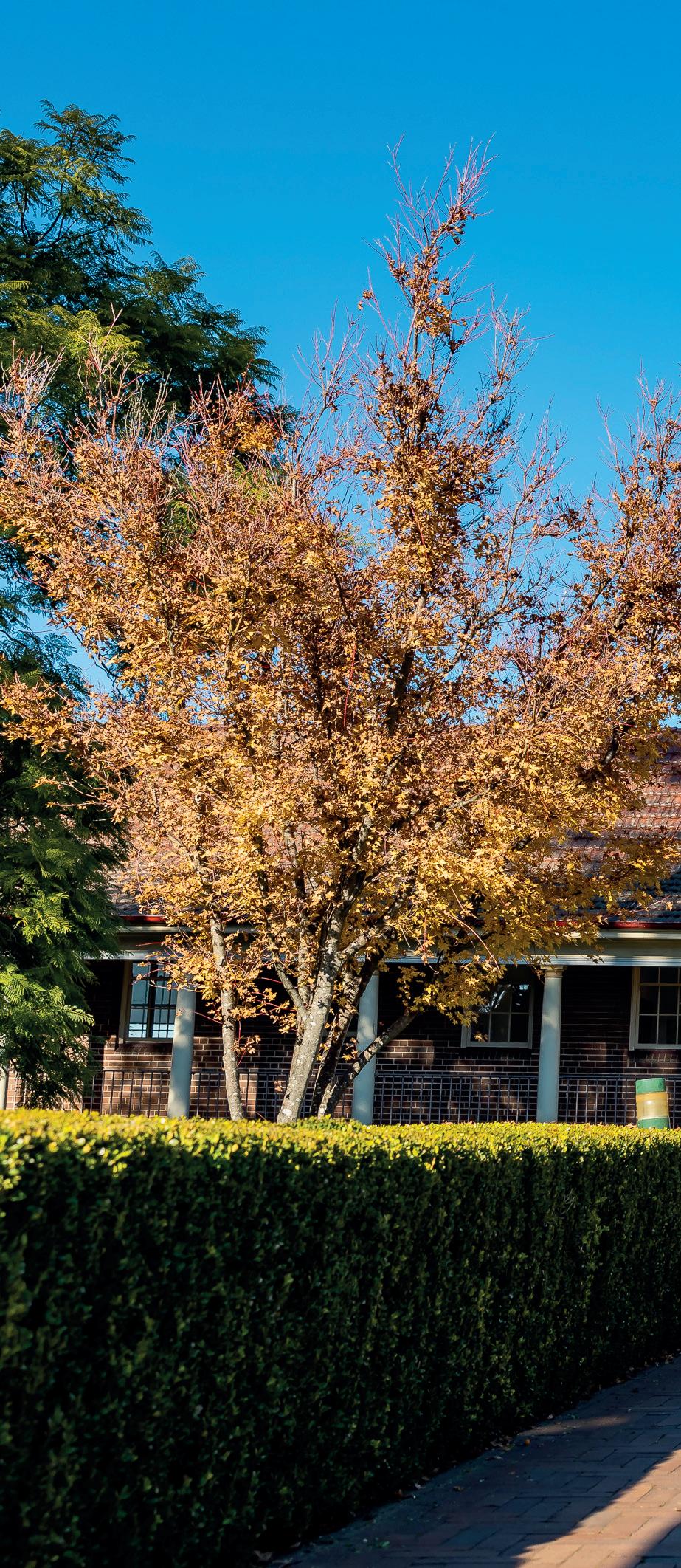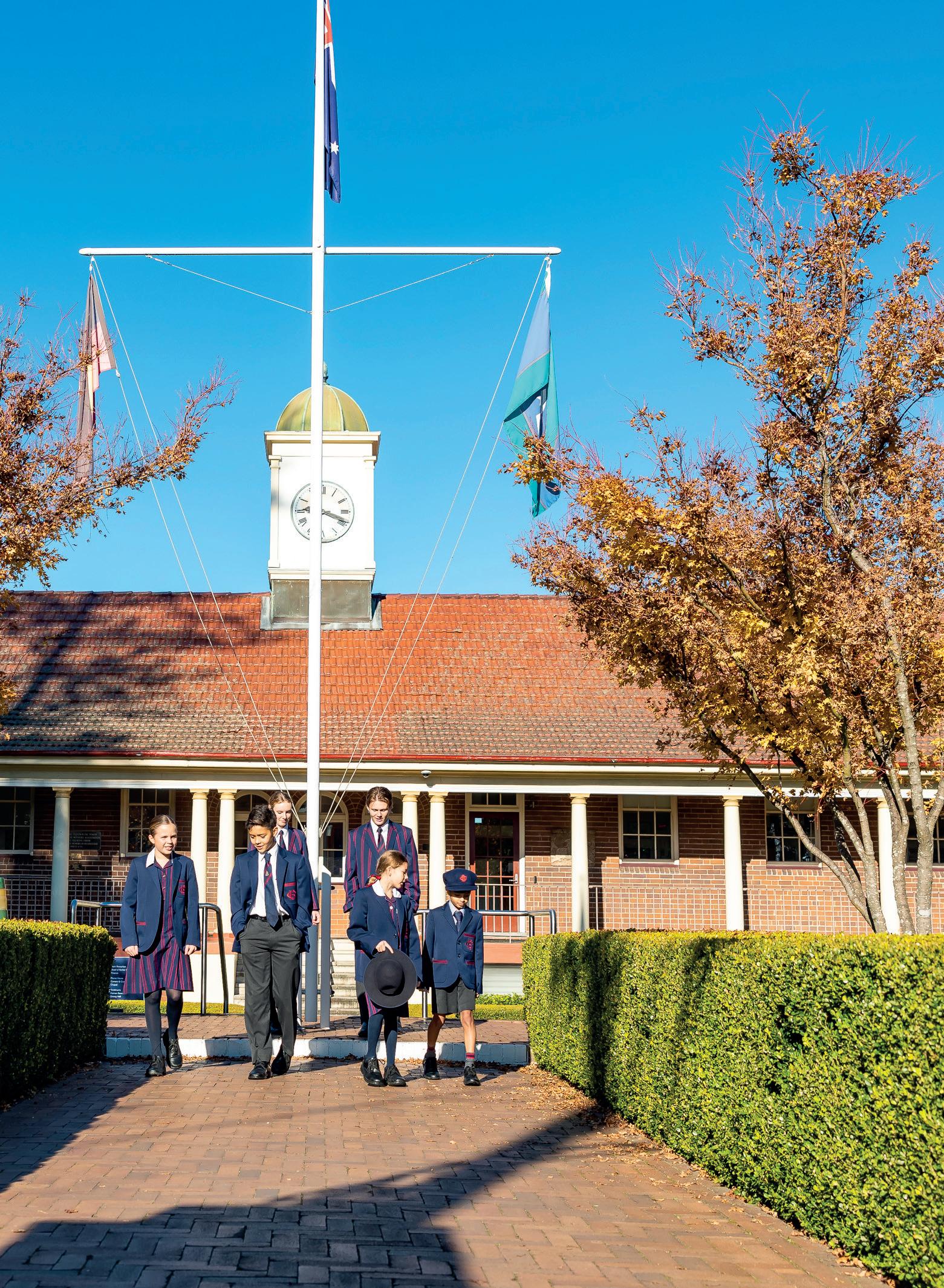
Prospectus Prospectus


Prospectus Prospectus
An Anglican community inspiring every learner every experience every day
To be a leader in Christian education that is characterised by a global vision that inspires hope
Commitment
Compassion
Courage Integrity
Respect
We acknowledge the Dharug, Darkinjung, Wonnarua and Yolŋu peoples who are the traditional custodians of the land on which Barker College, Darkinjung Barker, Ngarralingayil Barker and Dhupuma Barker stand.
We pay respect to the Elders past, present and emerging of the Dharug, Darkinjung, Wonnarua and Yolŋu nations and extend that respect to other Indigenous people within the Barker College community.
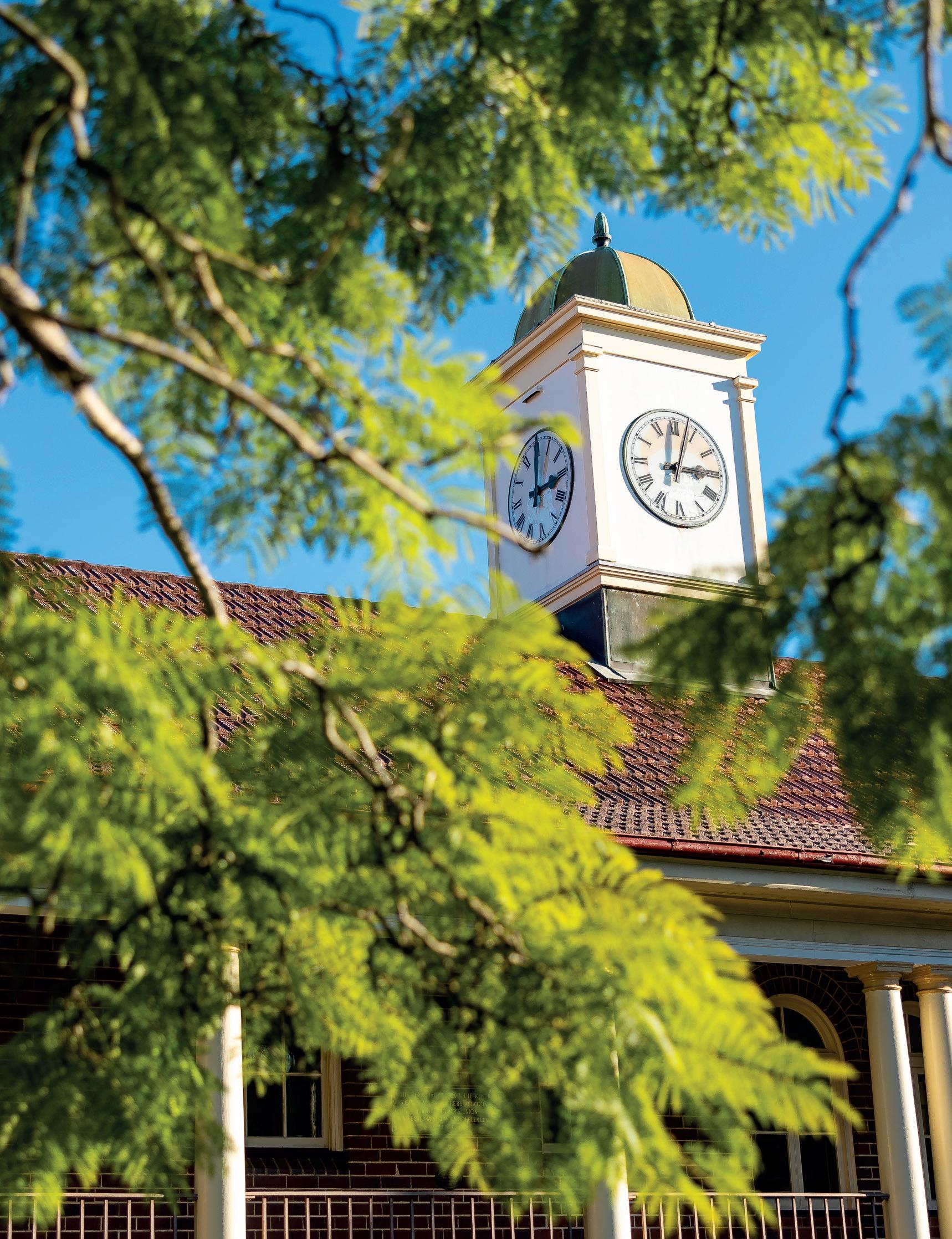


Barker has been a part of the fabric of Sydney life since 1890. It is a thriving school with a rich heritage, providing outstanding education for both boys and girls.
A Barker education is shaped by our focus on preparing for a life beyond the school gates. We seek to expose our students to diverse opportunities and experiences, so that they are able to develop resilience and adaptability within a supportive environment.
There are two distinct differences at Barker College. One is that it’s a school that deliberately and intentionally allows people to thrive in a holistic sense –emotionally, physiologically, physically, academically.
The second thing is that we have a firm coeducational identity and a firm expression of that. It’s a view that everybody can find a place and thrive irrespective of interests, skillset or capacity and be committed to doing that in a way that brings young men and young women together for the proper expression of human interaction and identity.
We have a beautiful heritage at Barker, yet we are preparing students for a future that will be far less defined by gender roles than in the past.
The Christian heritage of Barker is the inspiration for our values and purpose. We draw on the rich narrative of the life of Jesus yet welcome all traditions into our diverse community.
This is an exciting time to be considering a Barker education for your child. The School’s culture is inclusive, innovative and full of hope for the future. We are very excited about the years that lie ahead and extend a warm invitation to you to come and visit us so that we may show you what Barker has to offer your child.
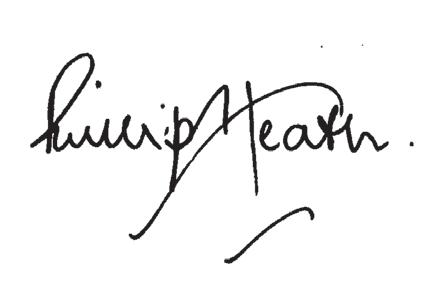
Phillip Heath AM Head of Barker

Support their strengths. Nourish their spirit.
In 1890, Reverend Henry Plume tutored five pupils for their public examinations and their success encouraged him to establish his own school in Kurrajong Heights. Initially coeducational, Barker was named after the second Bishop of Sydney, The Right Reverend Frederic Barker.
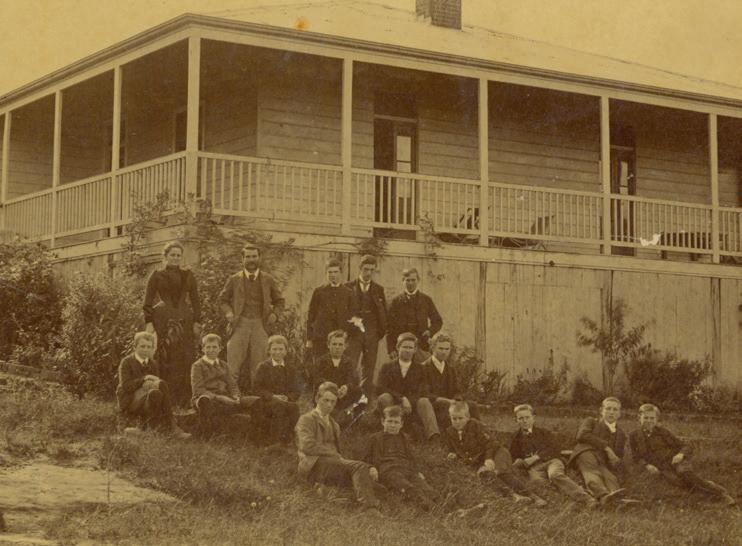
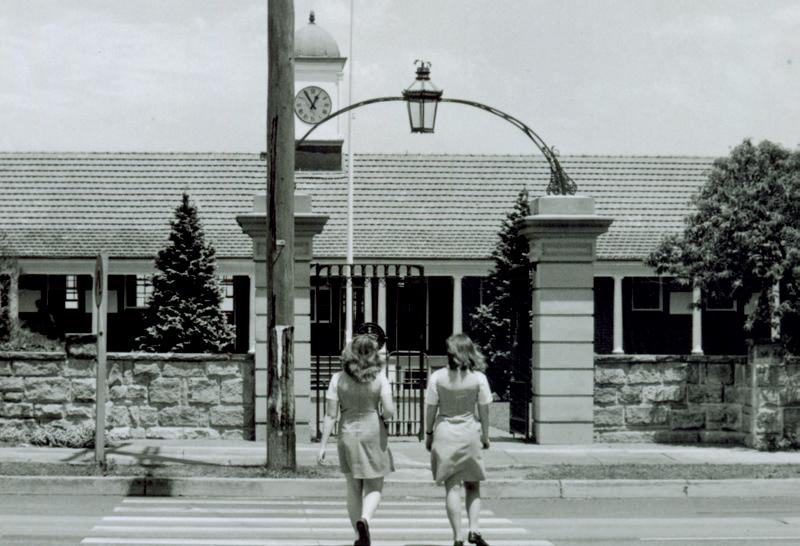
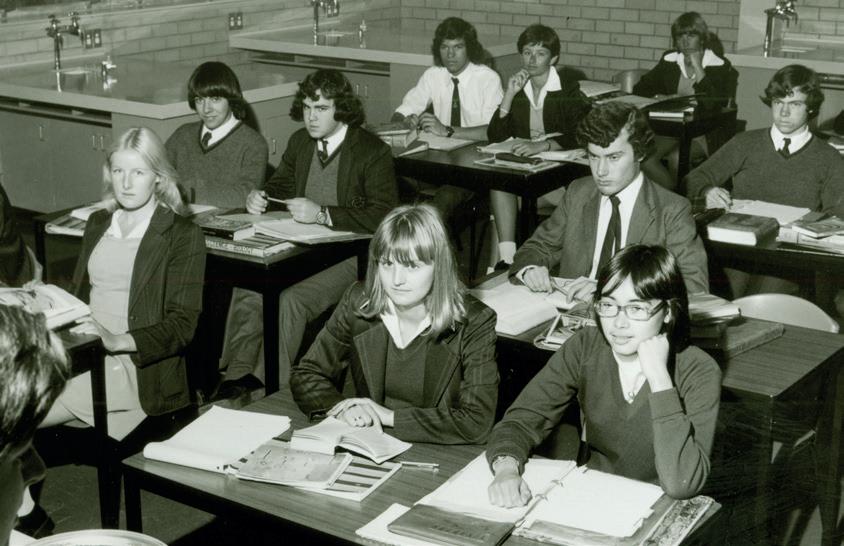
Early in 1896, the School, with an enrolment of 20 boys, moved to its present site at Hornsby.
In 1975, Barker established its unique coeducational Senior School for students in Years 11 and 12. Since 2000, female students have entered Barker at Year 10 level. From 2022, Barker became fully coeducational from Pre-K to Year 12.
While we are an Anglican School, we enrol students of all faiths and strongly believe that our school community is enriched by diversity. Through the Christian story we instil in our students the capacity, insight and knowledge they need to inspire real change.
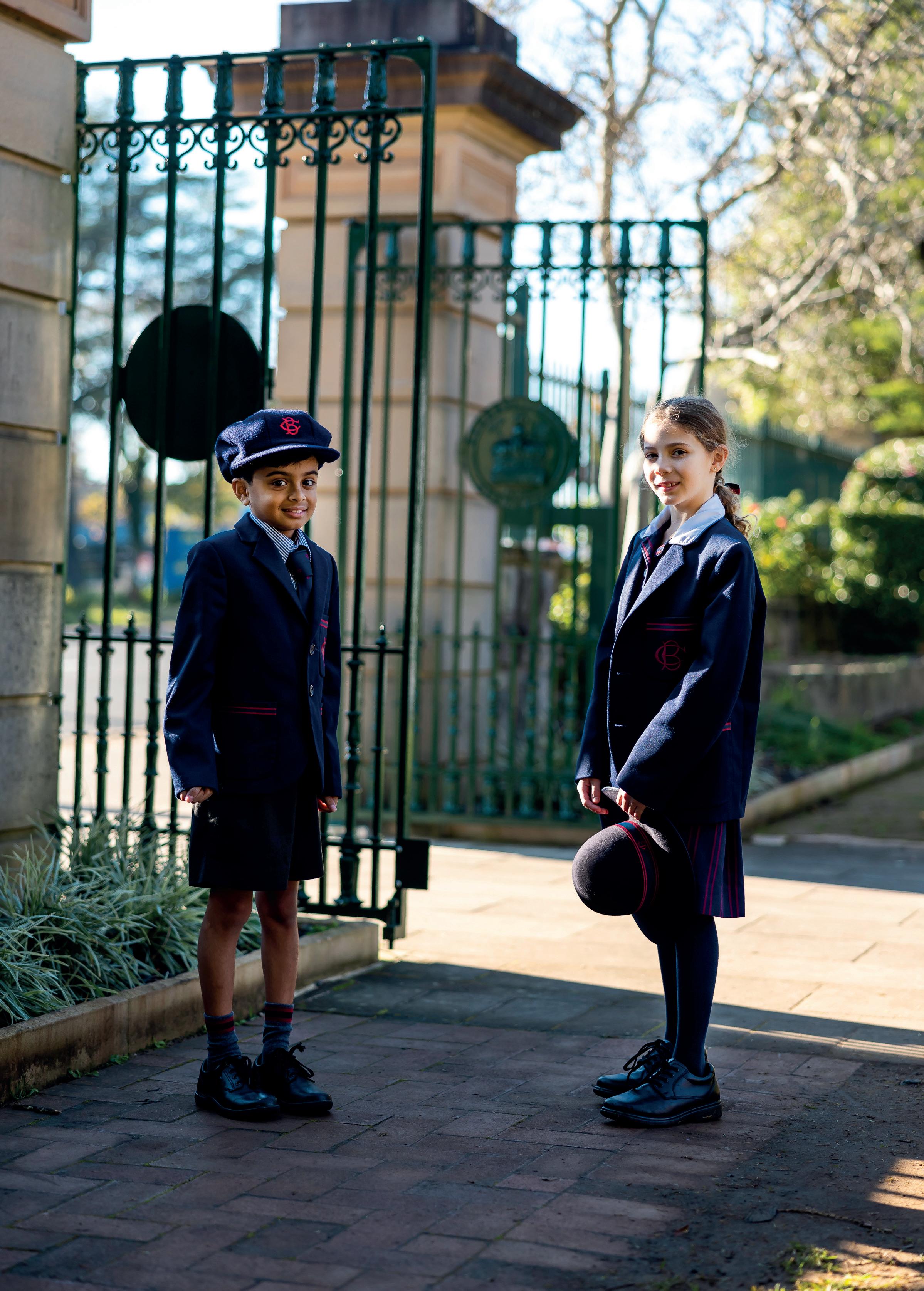
From the Mint Gates To the world.
No two days at Barker are ever the same. Students are constantly challenging themselves – and being challenged – as they grow, expand their minds and learn to think big, practically and independently.
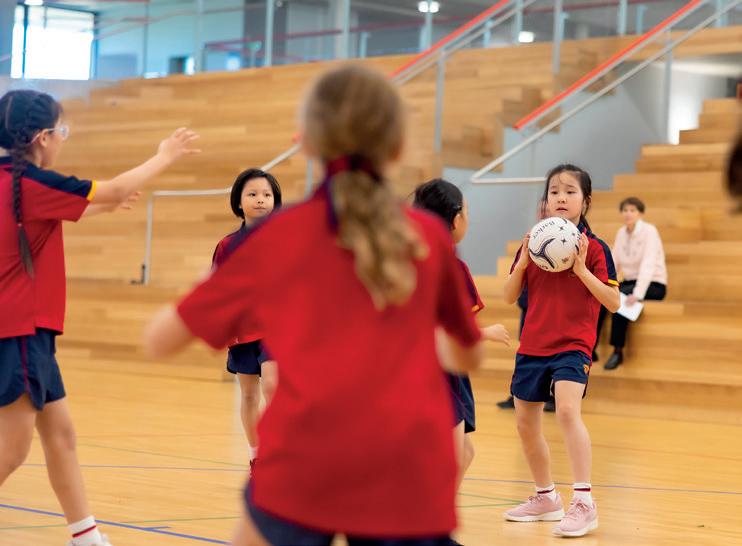
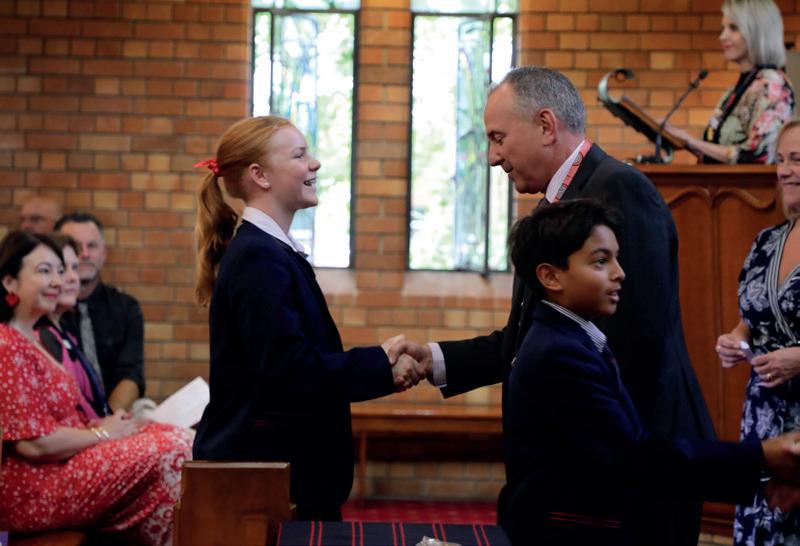
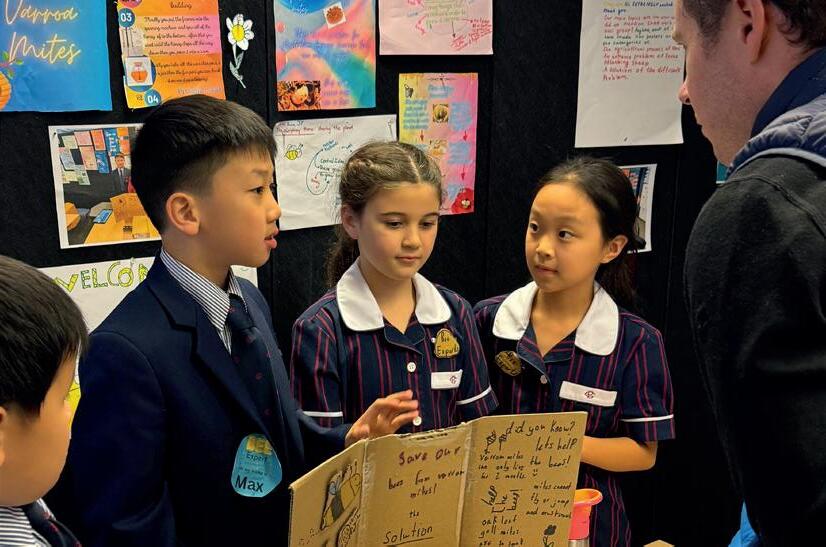
From Pre-K through to the Senior years, students are exposed to a range of diverse opportunities and experiences. Through this, they’re able to develop resilience and adaptability within a supportive environment. By celebrating the differences in every student, Barker is a place where every student belongs, is valued and loves to be.
Barker’s Junior School from Pre-K to Year 6, is an environment where all children are encouraged, challenged and engaged in learning and cocurricular experiences appropriate to children of their age.
The contemporary curriculum provides a balanced program drawing on foundational skills, guided inquiry, collaborative learning, and the appropriate use of resources, particularly technology. In addition, the diverse co-curricular program emphasises the place of sport and the creative and practical arts in the allaround development of each child. Developing students who are able to question, investigate, analyse and synthesise information, and then communicate their understanding is a key learning goal in the Junior School.
Underpinning our learning and teaching framework for our youngest students is the philosophy that places the child at the centre of all learning. Children are encouraged to be active learners who communicate, collaborate and develop skills of independence and resilience. They are natural inquirers and we look to foster this with the development of knowledge, understanding, skills and attitudes.
The development of fundamental literacy and numeracy skills are a focus in the early years. Appropriate support within the classroom and clear differentiation of learning by teachers and support personnel ensures all learners have the opportunity for growth. For our Pre-K students, the emphasis is on play-based learning and experiential learning.
The Primary Years Programme (PYP) of the International Baccalaureate
Our Junior School is an International Baccalaureate World School using the Primary Years Programme (PYP) curriculum framework to guide our approach to teaching and learning. The programme promotes global mindedness and a focus on students being the centre of their own learning through a guided inquiry approach.
Through the IB Primary Years Programme, the School aims to develop learners who are knowledgeable, caring, open-minded, balanced, principled, reflective, communicators, thinkers, risk-takers and inquirers. It is these ten attributes that we believe are important in their continuing learning journey.
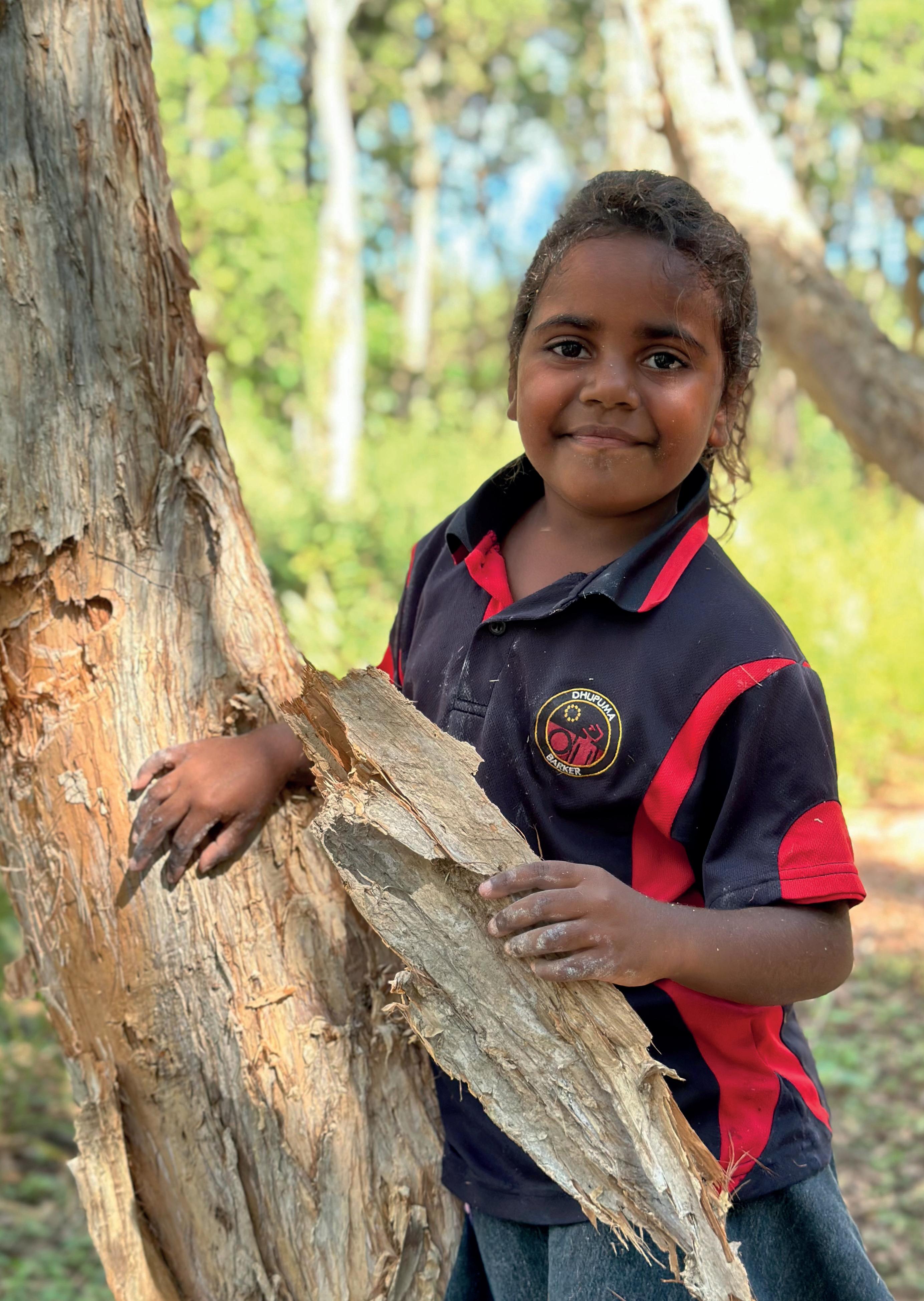
Lessons that last. Lives that flourish.
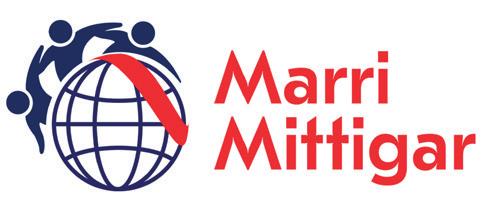
Education is the key and the hope for the future.
There is so much more to education than can be captured in literacy and numeracy rates. We know that these core skills are necessary for accessing the academic program both at school and post school.
Established in 2016, Barker College partnered with the Darkinjung Local Aboriginal Land Council to develop a new way of learning for Indigenous children living in the region.
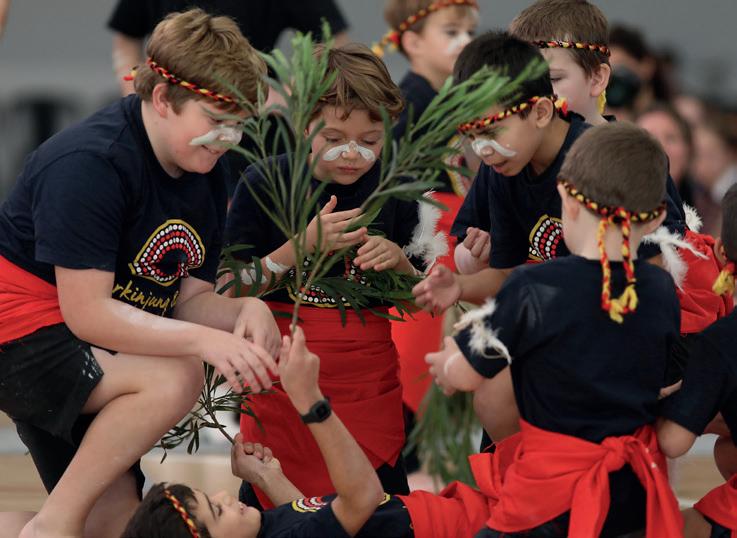
Each fortnight students from Darkinjung Barker College have the opportunity to interact with their peers from the Barker Hornsby campus. At Hornsby they attend classes such as Art, Music, Chapel, Personal Development and Library. The children also participate in House Carnivals for swimming, cross country and athletics. These regular excursions add to the experience for all students.
We are fortunate to have the involvement of the Darkinjung community, who assist in teaching the students Indigenous culture, including language, music and art. By providing education to First Nations children, Darkinjung Barker is an example of practical Reconciliation that lies deep in the heart of a local community group.
The School has strived to preserve and protect the integrity of the cultural practices of the region, providing an opportunity for children to thrive while learning on-Country.
Since its opening in 2020, considerable progress has been made at Ngarralingayil Barker to deliver this place of learning, designed specifically for young people living on Wonnarua Country.
Together with Kiray Putjung, and the Wollombi School Community Education Trust (WSCET), we are working together to provide education that is not only of the finest standard, but embodies pride in culture.
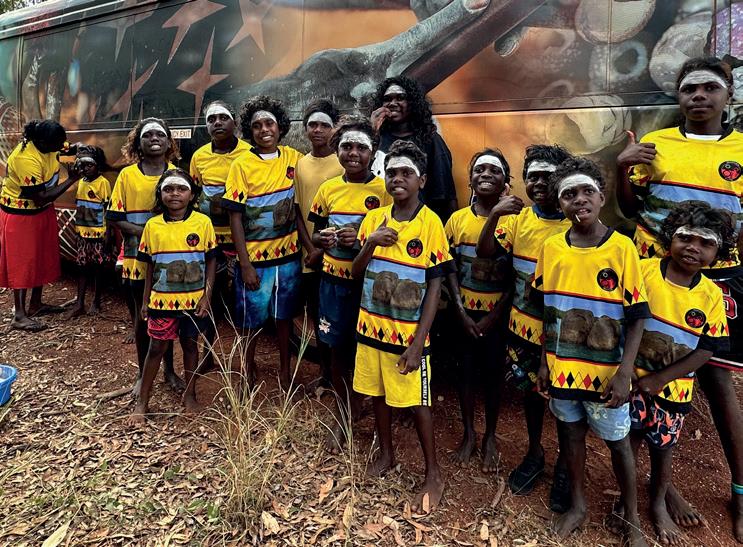
In 2021, Dhupuma Barker opened as a bilingual primary school for Yolŋu children from the community at Gunyangara in North East Arnhem. The School is a partnership between the Yothu Yindi Foundation and Barker College, aspiring to revive the ideals of the former Dhupuma College, and prioritise Yolŋu Matha (language), Rom (culture, knowledge) and Galtha (ways of learning).
There is an attached Family as First Techers program, welcoming families with children 0-4 years. In 2024, the School expanded to include Middle Years learning at Dhupuma Barker.
The School offers access to quality education – allowing children to have educational opportunities without having to leave the community. Blending the Australian Curriculum with traditional Yolŋu teachings and building students’ English language skills with a foundation in Yolŋu Matha, will empower young people to walk in two worlds with dignity and confidence.
Dhupuma Barker has already demonstrated the success that can come from on-Country, bilingual education with improved school engagement and attendance. The School is currently achieving attendance rates far exceeding those recorded in remote communities across Australia.
Marri Mittigar is Barker College’s coeducational special assistance school for children and young people of refugee experience. Meaning “Many Friends” in Darug, the language of First Nations Australians on whose lands the school stands, Marri Mittigar opened in 2024. It is a response to the need to help provide educational environments where refugee students feel safe, seen and supported.
Building on an after-school tutoring service for children of refugee background, Marri Mittigar provides an inclusive education, where academic success and personal growth are goals in tandem. It integrates therapeutic support with a rigorous and traumainformed curriculum to help students thrive while securely anchored in their own cultural heritage and identity.
Marri Mittigar students participate in a range of co-curricular activities that sit beside what takes place in the classroom, enriching their Australian schooling experience.

Focused beginnings. Broad futures.
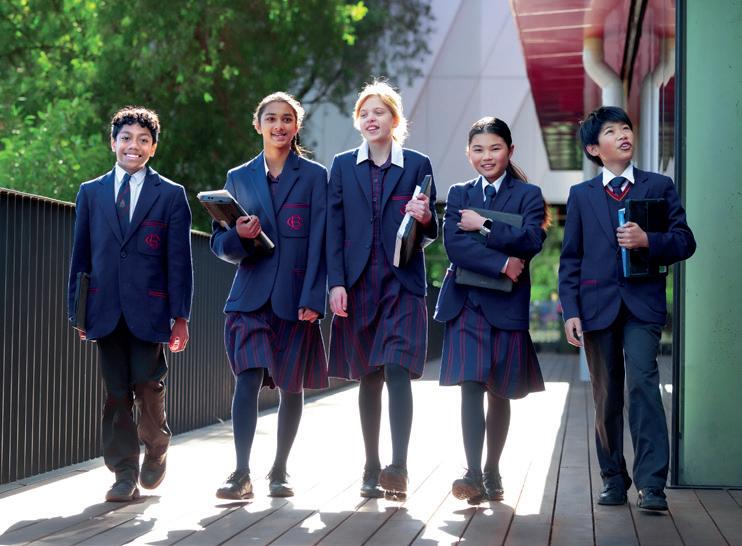
In Years 7 and 8 Barker’s curriculum aims to enhance knowledge and skills in a wide range of mandatory subjects, many of which include a creative and practical element. Some choice is available in the study of languages other than English. Course content is taught using a combination of strong disciplinary teaching and student directed learning to create a flexible and adaptive blended learning environment. Guided inquiry units are used to connect subjects together to foster rich conceptual understanding.
All students have access to academic enrichment and academic extension is available in the high potential classes in each year group.
In Year 9, the mandatory curriculum is replaced with a core and elective structure and a series of electives are introduced. Students are encouraged to select courses which align with their individual interest and learning preferences.
Student academic progress is supported by a robust pastoral care system based around Houses. The school wide wellbeing program and comprehensive co-curricular opportunities encourage all students to thrive.

At Barker a Senior student’s timetable is created from their choice of subjects, rather than predetermined subject lines.
We treat our Senior students as young adults, so that teachers become facilitators of learning and the skills involved in independent study develop. There is also an expectation of a healthy life-balance between the academic program and involvement in the co-curricular program. Our aim is to help these young adults to reach their potential and to have a fulfilling experience in their final three years of school.
Senior School students access a range of programs that are designed to enrich learning and prepare them for a future that is in many ways undefined. Senior School learning is further supported by outstanding facilities, including the Senior School Hub which provides dedicated study spaces for our Year 1012 students. A winner of the Sustainable Architecture award in 2024, the Senior School Hub is a building where learning is celebrated and wellbeing is allowed to thrive.
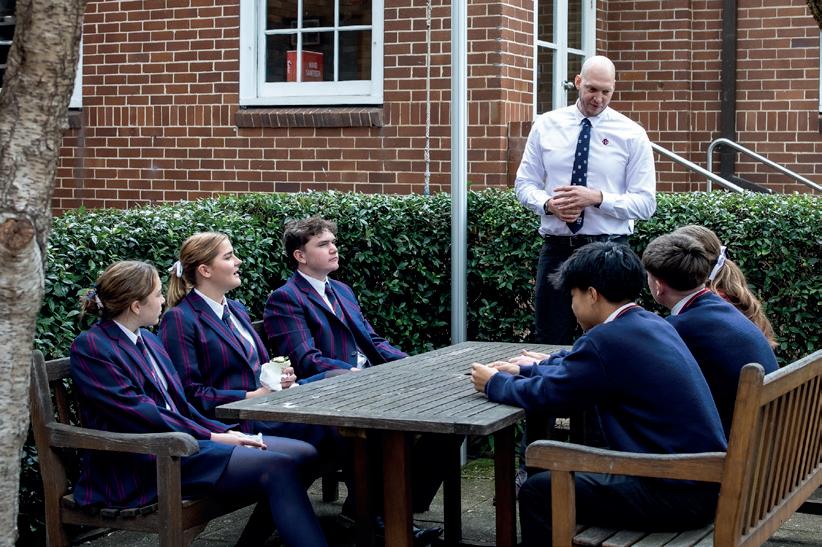
Coeducational boarding is a unique experience offered to our Senior students, starting in Year 10. By learning, living and studying together in a small community setting, students establish lifelong friendships.
Families can consider keeping their children closer to home until the end of Year 9 and then elect to enter boarding from the start of Year 10. Barker offers a number of programs that aim to support the boarders to find their role as citizens of the world. The programs have a focus on the development of life skills, personal resilience, mental fitness and encouraging students to develop their individual strengths.
With a long history of supporting country families, we give preference to students who are coming to Barker from rural and regional areas. Families are encouraged to get in touch with our Enrolments Office to arrange a tour of the campus and our boarding facilities.
Every Barker student enjoys the benefits of a broad, well rounded co-curricular program that includes creative and performing arts, sport, STEAM, Robotics debating and service and leadership development.
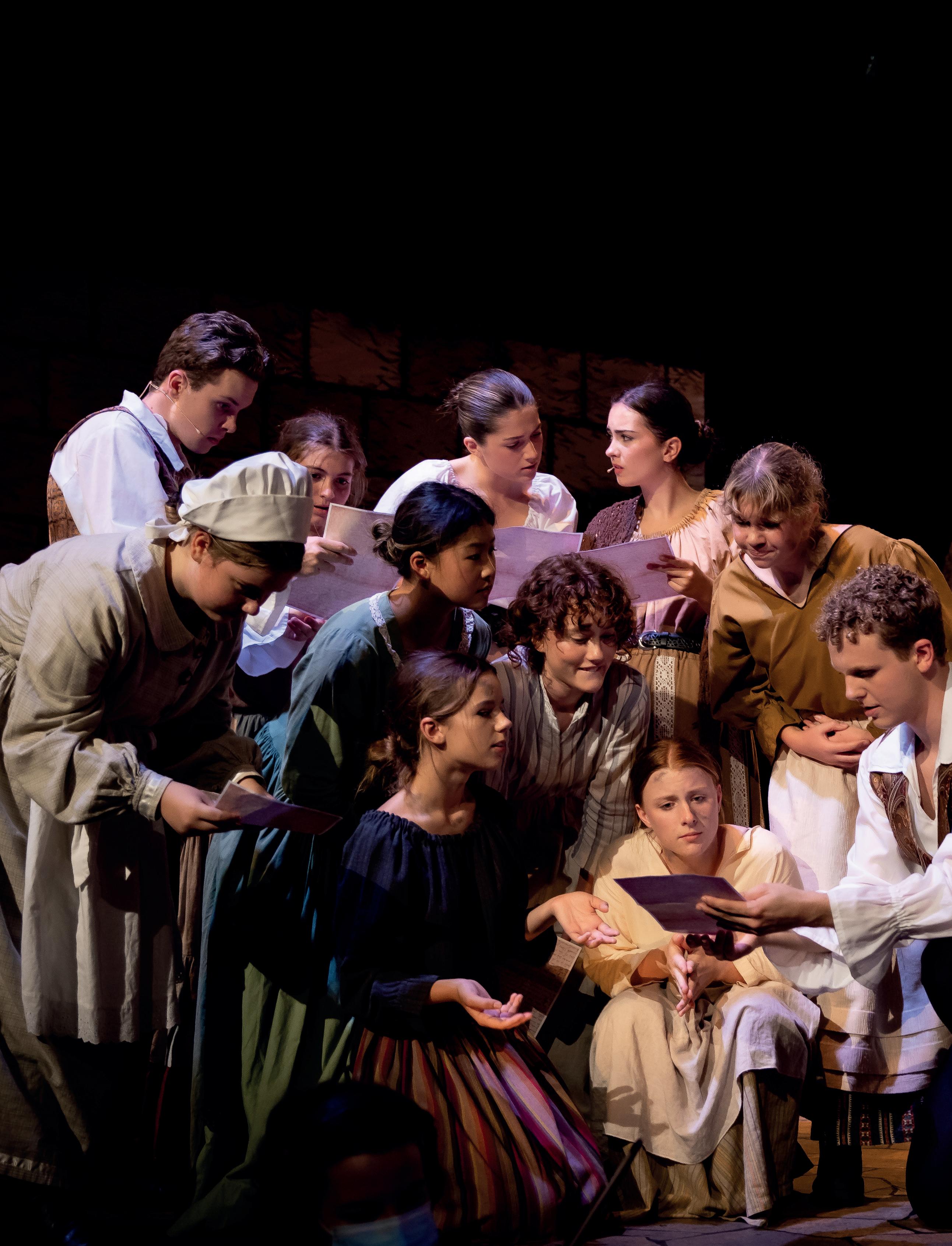
The Barker program allows for greater student choice and opportunities for all our students. Co-curricular activities play a vital role in contributing to the sense of community felt by our students and staff and the physical and mental health benefits of being involved in a sports program, in particular, are well known.
Through a rewarding and enriching program, we aim to maximize the creative and intelligence capacity of the students, challenging them to become better so they have the skills and confidence to do what they never thought they could.
Barker’s Robotics program continues to go from strength-to-strength. The program equips students across the Junior, Middle and Senior Schools with skills that few other high school programs can offer. Teaching communication, teamwork, leadership and initiative, whilst having fun and pursuing their passion whether that be technical, business or artistic.
In 2021 the Barker Redbacks were inducted into the FIRST Robotics Competition (FRC) Hall of Fame in recognition of their own individual team performance, and in particular, for establishing mentorships and robotics programs in other Australian schools and schools across several countries. Today more than 679,000 high school students across 110 countries are in FRC, robotics teams. Based on their impact in society and community, just two teams (out of 4500) are inducted into the Hall of Fame, annually.
In 2021, this honour was awarded to the Barker Redbacks.
Our well-established and highly regarded Performing Arts Program incorporates Music, Drama, Dance, Debating and Public Speaking. The annual Symphony Under the Stars music showcase and the much-loved Barker Musical Theatre production, are just some of the highlights of our annual calendar.
The experience inside the classroom is only one part of a Barker education. Co-curricular activities deepen the school experience for all our students, and from the arts to the sporting field, students are encouraged to challenge themselves and uncover their talents.
All Barker students are involved in the Outdoor Education program, allowing opportunities for trips to Barker’s Outdoor Education property
The Grange at Mt Victoria, along with camps and other outdoor opportunities. Our unique Extended Stay Program to Alice Springs is aimed at extending our students and also connecting with Central Australian cultures and developing relationships with members of a variety of Indigenous communities. Students are also able to take part in our long standing Cadets and Duke of Edinburgh programs.
To maintain a spiritual balance, students can join the voluntary Christian group Crusaders.
It’s a place for students to connect with others from across Years 7-12, discover more about Jesus and to grow in faith. CRU also hosts several events throughout the year, including CRU Connects, Inter-Cru afternoons where we join with Cru groups from other schools, Prayer and Praise Nights and CRU Kickstart at the start of the year.
CRU Small Groups also run each week and are an opportunity for students to meet in year groups to explore the Bible, to ask and answer questions about the Christian Faith, to pray and to get to know each other better. Some of our Senior School students serve by assisting to lead the younger year groups alongside Chaplaincy staff.
Barker maintains long standing membership of a variety of school and community sporting associations. We offer an extensive variety of sports choices including AFL, Rowing, Girls’ Rugby 7s, Dance and Girls’ Touch Football. Our focus is on providing the best possible co-curricular programs to complement the learning that occurs in a traditional classroom setting.
Service Learning at Barker is another example of our commitment to developing all-rounders who are committed to lifelong learning and making a positive contribution to society. Students contribute to local initiatives including Hornsby Connect, the Red Shield Appeal, donations to the Hornsby Ku-ring-gai Women’s Shelter and Closing the Gap. Student leadership and mentoring opportunities are also available and students are able to promote and contribute to initiatives which are of interest to them.

Skills are taught. Empathy is learnt.
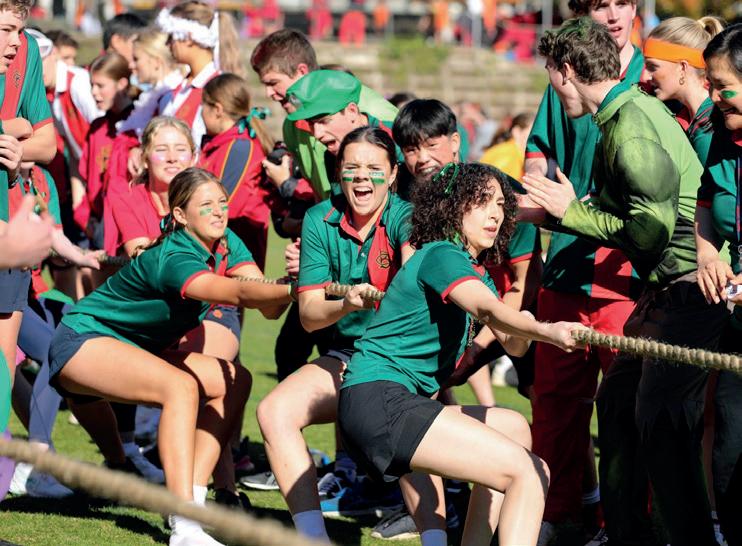
Barker is big enough and diverse enough for everybody to find their place, but the pastoral care system is well articulated to ensure individual care.
It is our belief that a well organised and structured House system, where every child is known and valued by multiple adults, can go some way to addressing the needs of our young people, helping each of them to thrive. Each student at Barker is part of a House, with a Head in the Middle and Senior years, who leads a team of a number of staff, all of whom support the wellbeing of the whole student; the academic, social and emotional.
Middle and Senior School Deans oversee the general tone, behaviour and wellbeing of a year group, as well as manage the academic program for that group. In the Junior School, students are also part of a House and the class teacher is the primary pastoral carer, supported by our specialist teachers and support staff.
Research suggests that a strong relationship with pastoral care leaders is paramount to creating a sense of belonging and academic morale. Pastoral care assists with the improvement of social cohesion which in turn can enhance a student’s overall sense of wellbeing and connectedness. At Barker our focus is on meeting the needs of today’s students with their particular challenges and capacities, whilst also fostering a sense of belonging and community.

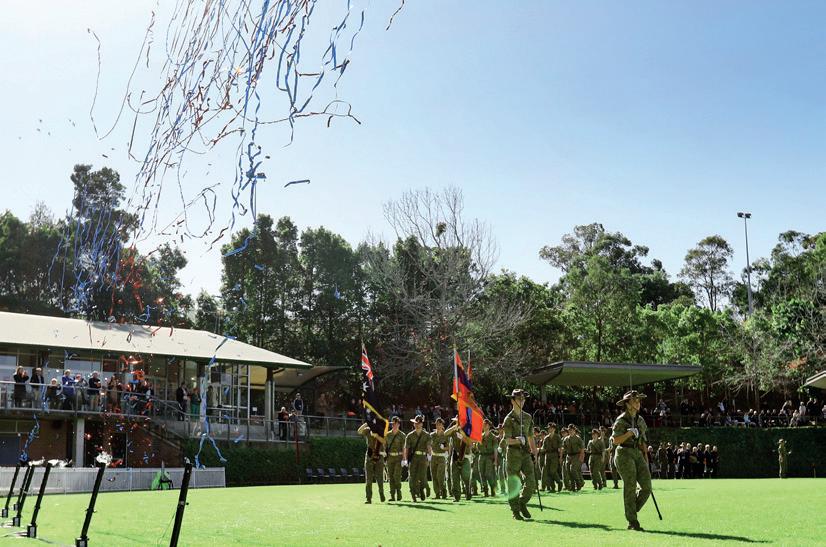
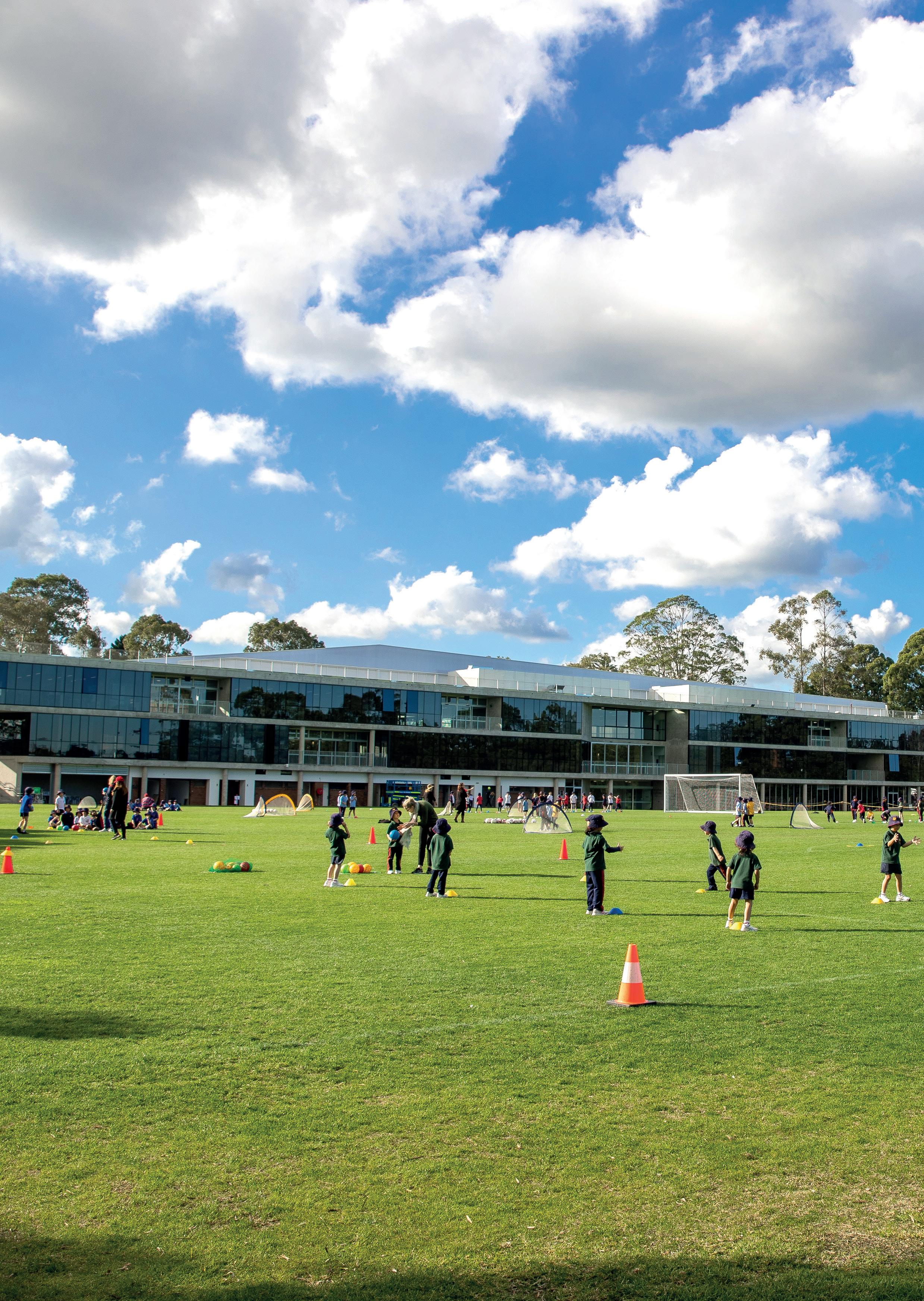
School spirit and community spirit go hand in hand at Barker.
We strive to make Barker an inclusive and welcoming school that comes together in order to give back.
In many ways, our school is uplifted by the actions of these deeply held values of inclusiveness and community. It exists in the invaluable work of the Barker College Parents’ Association, Sport

The Barker Foundation is the agent for our Barker community that inspires tomorrow’s Barker for us all, through progressive ideas and programs, scholarships, inclusivity initiatives, and future learning spaces.
Since 1981 the Barker Foundation has aimed to endow and strengthen the School by encouraging the gift of funds and stimulating people to use their talent and experience for the welfare of Barker. Building on this history of generosity from the Barker community, the Foundation Board and its Directors now work to actively support a full coed school to provide for the needs of the School both now and into the future.
Supporter Groups, Friends of Barker Music and the many other groups that make our school the special place it is for students, teachers and parents.
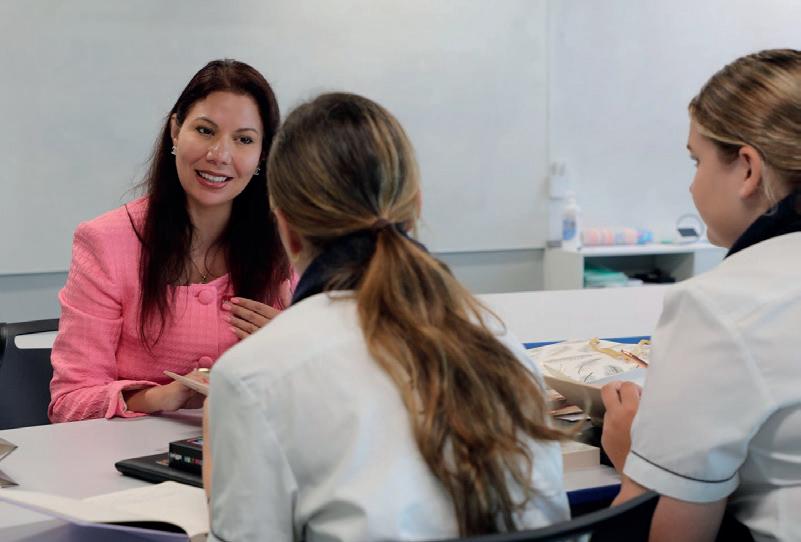
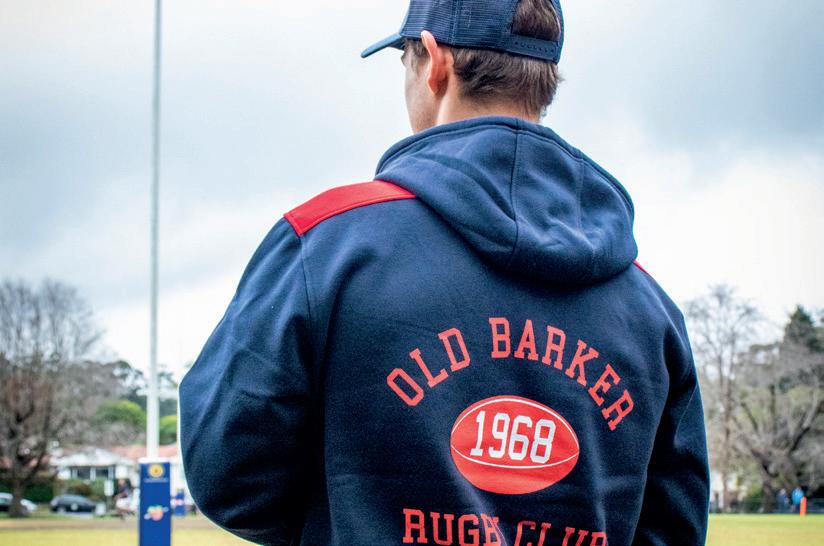
Launched in 2015, The Barker Institute aims to embrace new and innovative approaches to learning and new ideas and share these through various forums and professional learning experiences as they arise.
Through The Barker Institute, the School looks to develop collaborative ventures with other institutions to research and support new innovations, projects and programs that will benefit our students, staff and the broader community.
The Old Barker Association (OBA) is the oldest of Barker’s support groups. Founded as the Old Boys’ Union in 1908, it became the Old Barker Association in 1975 with the introduction of coeducation.
Its members currently number almost 20,000 past students of the School. The OBA provides significant financial support to the School ranging from major capital projects such as The Marks Pavilion and the OBA Outdoor Sound Stage to the audio upgrade in the Chapel. The OBA also supports the Barker community through the OBA Support for Life mental health program, Career mentoring for students, the Barker Alumni Mentoring Platform, alumni networking events and cultural and sporting clubs for former students.
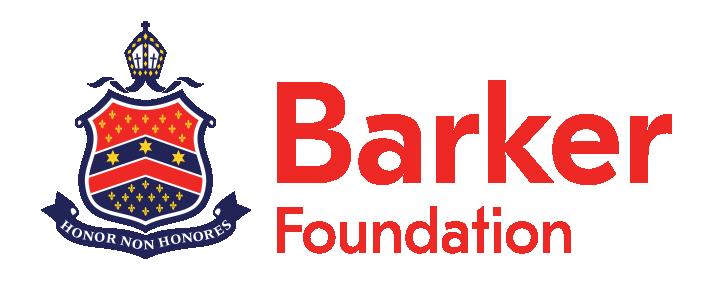
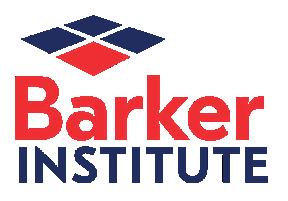
Experience the Barker difference
Reading about Barker should give you a strong sense of who we are. However, it’s only once you experience the campus, facilities and meet our students that you can fully appreciate what makes a Barker education so unique.
To allow us to give you the full Barker experience and all the insight you need, we encourage you to book a visit via our website www.barker.college
Learn More
To learn more about Barker please visit our website, like us on Facebook, Instagram and follow us on Twitter.
Apply
Complete the Online Enrolment Registration Form from our website
Contact
For more information, please contact our Director of Enrolments +61 2 8438 7207 enrolments@barker.nsw.edu.au
barker.college
facebook.com/barkercollege
barkercollege
@barkercollege
#WeAreBarker The Great Cause
